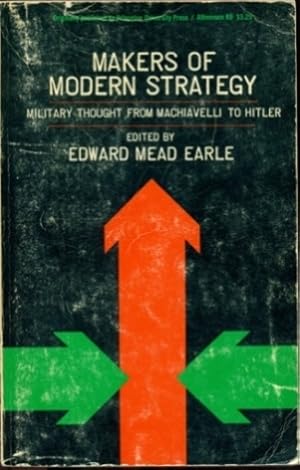Earle Edward Mead Editor Collaboration (1 results)
FeedbackSearch filters
Product Type
- All Product Types
- Books (1)
- Magazines & Periodicals (No further results match this refinement)
- Comics (No further results match this refinement)
- Sheet Music (No further results match this refinement)
- Art, Prints & Posters (No further results match this refinement)
- Photographs (No further results match this refinement)
- Maps (No further results match this refinement)
- Manuscripts & Paper Collectibles (No further results match this refinement)
Condition Learn more
- New (No further results match this refinement)
- As New, Fine or Near Fine (No further results match this refinement)
- Very Good or Good (1)
- Fair or Poor (No further results match this refinement)
- As Described (No further results match this refinement)
Binding
- All Bindings
- Hardcover (No further results match this refinement)
- Softcover (1)
Collectible Attributes
- First Edition (1)
- Signed (No further results match this refinement)
- Dust Jacket (No further results match this refinement)
- Seller-Supplied Images (1)
- Not Print on Demand (1)
Language (1)
Price
- Any Price
- Under £ 20 (No further results match this refinement)
- £ 20 to £ 35 (No further results match this refinement)
- Over £ 35
Free Shipping
- Free Shipping to United Kingdom (No further results match this refinement)
Seller Location
Seller Rating
-
Makers of Modern Strategy: Military Thought from Machiavelli to Hitler
Published by Atheneum, New York, 1966
Language: English
Seller: Don's Book Store, Albuquerque, NM, U.S.A.
First Edition
£ 303.90
Convert currency£ 33.19 shipping from U.S.A. to United KingdomQuantity: 1 available
Add to basketTrade Paperback. Condition: Very Good. First Atheneum Edition. 553 Pages Indexed. The purpose of this book is to explain the manner in which the strategy of modern war has developed, in the conviction that a knowledge of the best military thought will enable readers to comprehend the causes of war and the fundamental principles which govern its conduct. The editors believe that eternal vigilance in such matters is the price of liberty and if there is to be a durable peace there must be a clear understanding of the role which armed force plays in international society. In chapter 2 is shown that the greatest military historians of our time have felt a need to apologize for their interest in military problems because dislike for war and ignorance concerning its role in human affairs have led peaceful peoples everywhere to deprecate its significance in history and ignore its portentous meaning for our future. For it is not force, in itself, which is wrong but the purposes to which force is sometimes put. As Pascal said almost three centuries ago, we must realize that: Justice without force is impotent. Force without justice tyrannical. The American nation is the foremost military power of modern times. The manner in which we use this great power is momentous for ourselves and for the world. Contents in Five parts: The Origins of Modern War From the 16th Century to the 18th Century, The Classics of the 19th Century Interpreters of Napoleon, Form the 19th Century to the First World War, From the First to the Second World War, and Sea and Air War.


